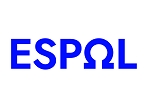Présentation
New at the start of the 2023-2024 school year.
Digitalisation is a critical issue in today’s global and European politics. The fast spread of the internet to 63% of global population today and the increased use of digital tools for politics and policy-making bring about new opportunities and challenges. While it was hoped that the internet and digital tools would reduce barriers leading to more collective, democratic and borderless collaboration inducing positive social and political change, more recently the internet became to be seen to more likely reinforce existing barriers and even as rising threat to individuals, society, (democratic) governments. Thus, this master brings together students from different backgrounds to study various political, legal and social problems of the today’s digitalisation processes and explore new solutions to address them
The master’s programme Digital Politics and Governance examines the ways in which digitalisation affects states, politics, government, diplomacy and society. It explore how public authorities (regional bodies, nation states, European institutions, UN agencies) and private actors (individuals, organisations, transnational businesses, NGOs, etc.) shape the digital transformation of politics. The Master discusses opportunities and challenges as well as the negative and positive externalities of such digital transformations for states, societies, organisations and individuals.
Academic career: students graduating from our MA can also access PhD programmes in order to pursue an academic career.
National regulation bodies: for example, in France, CNIL, ARCEP;
Big tech companies: for example in their public affairs departments;
Businesses and private sector: for example as digital strategy advisor;
Start-ups or think tanks in the digital sector: for example France Digitale;
Public administration at national and subnational level: ministries, regional and local authorities, but also other public administration agencies recruit experts in digital transformation of public policy;
International and European organisations: the European Union, the OECD or the European Union Agency for Cybersecurity;
NGOs, trade unions, interest groups and lobbies operating in the digital and data sector, in citizens’ digital rights or digital inclusion;
Master Droit, Economie, Gestion
Mention Etudes Européennes et Internationales
Parcours Digital Politics and Governance
Jury rectoral en cours
Programme
This master brings together students from different backgrounds to study various political, legal and social problems of the today’s digitalisation processes and explore new solutions to address them
Admission
Several criteria are taken into account for the evaluation of the admission
Academic excellence: academic background and results.
Professional experience, including internships and public engagement.
Future plans and motivation, as explained in your personal statement
Personal background.
Several criteria are taken into account for the evaluation of the admission
Academic excellence: academic background and results.
Professional experience, including internships and public engagement.
Future plans and motivation, as explained in your personal statement
Personal background.






